CATEGORIES
Kategorien
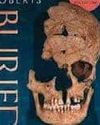
Grave insights
BRENNA HASSETT recommends an account of life and individual deaths - in Britain during the first millennium AD
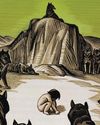
Raised by wolves
Feral children have fascinated and frightened people for centuries, raising questions about what it means to be human. Richard Sugg shares the stories of some of these wild children - and explains why their return to society was not always a happy one

Medieval Christians were capable of imagining goddess-like beings that looked thoroughly pagan
RONALD HUTTON talks to Rhiannon Davies about his new book exploring four female deities who straddled the pagan and Christian worlds in the Middle Ages
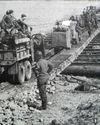
The final slog
TAYLOR DOWNING salutes an account of the often overlooked last days of the Second World War in Europe, when Allied troops faced stubborn resistance from German forces
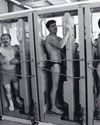
Generating fear
STEPHEN WALKER gives a nervous welcome to a history of nuclear power, which focuses on the accidents and the disasters that have plagued the sector

First letters
LANGUAGE
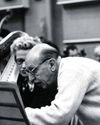
A cultural institution
Mixing music with drama and the ancient with the cutting-edge, the BBC's Third Programme set out to scale the shining peaks of "high culture". But, says DAVID HENDY, its lofty aims alienated as much as they allured
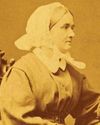
A congregation of voices
SARAH FOOT enjoys a new history of the Church of England, a book that finds space for the reflections of ordinary parishioners as well charting the deeds of the great and the good
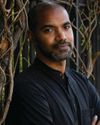
Black Communities Have Had to Pay for the Failures of Emancipation
Kris Manjapra speaks to Ellie Cawthorne about his new book, which explores how emancipations of enslaved people have left troubled legacies that still endure today
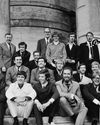
Sounds of the Sixties
Facing fleets of pirate radio stations and teenagers hungry to hear the latest hits, the BBC had to change its tune. David Hendy explores how the corporation attempted to reach new audiences in the 1960s
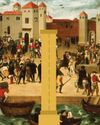
A Cruel Renaissance
“Wicked, an abomination, and against all humanity.” These words, uttered in 1416, shine a light on a dark truth: that slavery thrived in Renaissance Europe. Hannah Skoda tells the stories of people living in bondage in a period when ideals of liberty and the nobility of human nature didn't apply to all

How Britain Became a Cultural Colossus
The secret to the nation's status as a creative superpower lies not in stability and peace but a past dominated by invasion, disruption and war
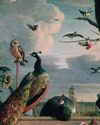
Feather beds, cockfights and midnight flights to the moon
From seeing feathers as omens of death to saving soldiers with homing pigeons, our interactions with birds have always been contradictory. Roy and Lesley Adkins select five chapters from avian history to illuminate this complex relationship
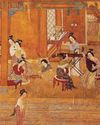
Gods among men
JANE DRAYCOTT applauds an ambitious journey through the global history of emperors, from the most ancient civilisations to the 20th-century demise of world-spanning realms
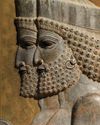
EMPIRE OF THE GREATS
Not even a 2,000-year smear campaign, instigated by the Greeks, can obscure the staggering achievements of the ancient Persians. Lloyd Llewellyn-Jones tells the story of the Iranian dynasty that forged the greatest empire the world had ever known
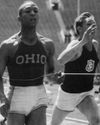
Jesse Owens 1913-80
He was a bit of a showman and even raced against horses for money. When asked why, he said: You can't eat four gold medals'
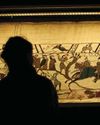
Spinning stories
HELEN CARR assesses a magisterial overview of how people have represented the past, from medieval propaganda to historical fiction
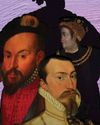
The family behind the Tudors
The name Tudor has reverberated down the centuries, but another family lurked in the background, helping the dynasty to greatness - and sometimes seeking to tear it down. Joanne Paul chronicles the meteoric rise and deadly fall of the Dudleys
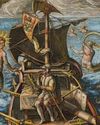
Voyage into the unknown
MARGARET SMALL commends a new biography of Ferdinand Magellan that looks beyond the Portuguese explorer's globe-circling achievements to reveal the man behind the myth
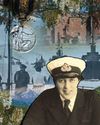
Victoria Drummond Engineering trailblazer
A century ago, the barriers facing any woman longing for a career in marine engineering seemed almost insurmountable - but not quite. JO STANLEY introduces a woman who had the talent, bravery and determination to make her mark in the male-dominated maritime world
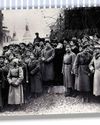
This will be seen as a hybrid war, in which a key weapon is the deliberate misreading of history
In February, following months of escalating tensions, Russia invaded Ukraine. Are parallels with the past useful in making sense of the war, or is history being used for more sinister ends? Four experts have their say
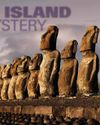
An Island Mystery
Three centuries ago, when European explorers first sighted the Pacific island of Rapa Nui, it was home to a thriving population and hundreds of haunting moai statues. But, within a few generations, the landscape was decimated and its population in sharp decline. So what happened? Cat Jarman untangles
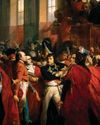
How Napoleon (almost) destroyed the French Revolution
The Corsican general proclaimed himself a defender of republican ideals – while doing all he could to dismantle them
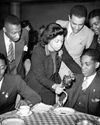
Mirroring Multicultural Britain
From its inception the BBC has featured entertainers of colour, but they were often reduced to "exotic” attractions. David Hendy explores how the corporation tried to include diverse voices, from the 1930s to the postwar years
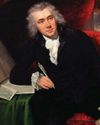
William Wilberforce 1759-1833
Former Speaker of the House of Commons, John Bercow, chooses
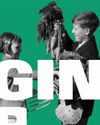
Digging for Victory
When war broke out in 1939, food shortages posed just as grave a threat to Britons as a German invasion. From Dig for Victory to the land girls, John Martin charts a nation’s battle with starvation
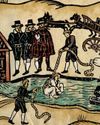
What Drove the Witch-Hunters' Cruel Crusade?
They tortured, tricked and terrorised suspects into confessions - often with undisguised relish. So, asks Marion Gibson, should the witchfinders of 16th and 17th-century Europe be dismissed as sadists and charlatans?

Suleyman was just as bellicose as his father, if not as gratuitously cruel
CHRISTOPHER DE BELLAIGUE talks to Rhiannon Davies about his book charting the early years of Suleyman the Magnificent's reign, when the sultan had to navigate the deadly machinations of the Ottoman court as well as battle Christian powers
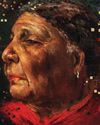
“Mary Seacole never aspired to be a pioneer of women's nursing. It is only in recent decades that we have invested her with this status”
Helen Rappaport, who has spent 20 years researching Mary Seacole's life, argues that the Jamaican healer's transformation into a modern cultural icon has obscured the real woman

We decide for ourselves who we think we are - and museums are central to that
In his new BBC Radio 4 series, curator and broadcaster Neil MacGregor explores the changing role of Britain's museums. He explains to Matt Elton why these venues are more vital now than ever